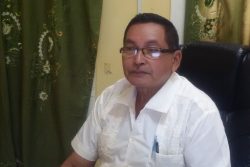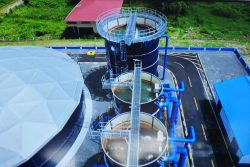No one should be impugning the allegiance to this country of any of our leaders, past or present. Different heads of government have had varied approaches to the Venezuela controversy over the years, partly because, other things aside, it takes time to acquire the knowledge and understanding necessary to grasp all the dimensions of what is a complicated issue. Sometimes our heads faced major distractions in terms of internal politics, in addition to which when relations with our neighbour were relatively quiescent, they felt less urgency to pursue the matter with any energy. It should also be said that presidents coming into office would be dependent for their information on the Ministry of Foreign Affairs, and the quality of what that institution has been capable of providing has varied from one period to the next.
Over the span of the last sixty years there have been on occasion misreadings of the situation with Venezuela, as well as misjudgements and even mistakes in addressing the controversy. However, whatever may or may not have been discussed with Caracas from Burnham’s time until now, it should be repeated that none of our leaders, absolutely none, lacked patriotism or a commitment to the nation where its territorial integrity was concerned. At a time like this, therefore, when unity should be at a premium, it is highly improper for letter writers on any side of the political divide to suggest or imply otherwise, no matter to which head of government they are directing their accusation.
There will be a time when the full details of the diplomatic story over the decades will be researched and written about, especially as it relates to developments from the end of the 1960s onwards. But once again, whatever truth emerges then about errors and miscalculations there should still be no vilifying of leaders as it concerns their patriotic sentiment. All of them, like the rest of us, know that Essequibo is ours and have sought more or less effectively to keep it that way. Errors of judgement are not synonymous with a lack of patriotism.
But the matter of these unwarranted allegations against two of our former leaders in particular are far from being the worst of what has appeared in our letter columns. Last week one writer expressed the view that the Geneva Agreement was a poisoned chalice and that the government should undertake research to discredit it. “Then,” said Mr Robin Singh, “maybe we can work on rebuilding relations with our neighbour, Venezuela, in the spirit of Simón Bolívar and Hugo Chávez, ushering in an era of peace and prosperity for both nations.” This is, of course, the current stance of the Venezuelan government which has refused to recognize the right of the ICJ to issue a judgment on the validity of the 1899 Award and is pressuring Guyana to accept bilateral negotiations.
Leaving aside for the moment the fallaciousness of the argument he puts forward in defence of his conclusion, it must be said that his position is not just utter tripe, it is downright dangerous. Here is this country, currently before the ICJ as a consequence of a decision by the UN Secretary General under the terms of the Geneva Agreement, and there is Mr Singh arguing that we should abandon all that to do what Venezuela wants. And what Venezuela wants is Guyana’s land and maritime space, which it believes it can only secure through bilateral talks. It rejects the ICJ because it thinks that the international Court will indeed uphold the validity of the 1899 Arbitral Award.
It can only be asked what on earth is anyone doing undermining our own case in The Hague by suggesting there is a problem with the Geneva Agreement? And what on earth is anyone doing trying to remove any protection, legal, moral and international, that we have, which is what would happen if we unilaterally abandoned Geneva.
Mr Singh bases his assertions mostly on what Hugo Chávez said when he came to this country, i.e. that the US had fomented strife between Guyana and Venezuela so as to divide them and push them into armed conflict. This was an imperialist plan, he went on to say, “which created great business because since then Venezuela has been in debt because of its heavy expenditure on military equipment, much of which was obsolete, obtained from North America.” Having accused Burnham of being a CIA agent, Mr Singh writes that it raises the question of whether when he signed Geneva, he was acting under the direction of the CIA.
He goes on to make reference to Cheddi Jagan who had opposed the agreement, and quoted his words from The West on Trial: “Recognition was thus given to the spurious Venezuelan territorial claim, and what was a closed case since 1899 was re-opened.” It is true that Burnham had not acted in consultation with the PPP leadership, but Geneva did not give recognition to the “spurious Venezuelan territorial claim”. Apart from the fact that the claim had already had exposure in the UN, the wording of Geneva was exceedingly careful, giving no recognition to the actual claim as such. It might be added that although the early position of the PPP was criticism of the agreement, once in government it came to understand the protection it afforded.
The thing to be emphasized is that the Geneva Agreement has provided an umbrella for Guyana for nearly sixty years, and that without it we would undoubtedly have been invaded with no one to help us. It tied Venezuela into an international treaty which made it difficult for her to pursue a military option, although perhaps in frustration, or perhaps as a demonstration, she did invade our half of the island of Ankoko following this country’s independence. She has made periodic intrusions into our land and air space at times of stress, all created by her, but until now has avoided substantial military intervention.
Which brings us to Mr Singh’s assumption that we need access to CIA records to uncover the truth about Geneva. We don’t. The US had nothing to do with the Agreement; that was all in Britain’s hands, and the relevant records are there. As was observed by the America Department of the Foreign Office in January 1966, “The Americans know perfectly well that the Venezuelan claim is spurious, but they appear reluctant to intervene because of the importance of their relations with Venezuela. They have been taking the line that Venezuela can be expected gradually to drop the matter.” ‘If only’, modern Guyanese must be thinking.
The whole background to Geneva was the imminence of Guyana’s independence, and the fear, among other things, that the possibility existed Venezuela might invade. In one briefing paper the Foreign Office made reference to the danger of leaving the matter unresolved, since, “Venezuela might even be tempted to take armed action; as time went on she would certainly use her wealth, size and influence with the United States to do maximum damage to British Guiana.” This was a different UK government from the one associated with the arrangements for the election which brought Burnham to office. The Labour Party had been out of power for thirteen years, and possibly may not have wanted to be accused of abandoning a newly independent Guyana to its fate.
If Forbes Burnham was resentful of certain Foreign Service officers, he and the Foreign Office were in absolute accord in one regard: “…neither we nor Mr. Burnham,” ran the brief, “would agree to any Venezuela proposal or part of a proposal which could be taken to imply the slightest admission on our part that discussion of frontier revision is justified.” It is for this reason the Agreement described the controversy as having arisen “as a result of the Venezuelan contention that the arbitral award of 1899 … is null and void.” There is no room for any “discussion of frontier revision.”
Prior to the negotiations in Geneva, there were two meetings in the Foreign Office on the 9th and 10th December 1965 between the British and Guianese, and the Venezuelans led by Foreign Minister Iribarren Borges. Burnham headed the Guianese team, and Secretary of State for Foreign Affairs Michael Stewart chaired the meeting. Burnham and Stewart worked well together, but the meeting made no progress, and it was decided to continue the discussions in Geneva at ministerial level. These, as everyone knows, finally produced an agreement.
Last week Mr Ralph Ramkarran explained the various provisions of the Geneva Agreement and how Guyana has adhered to its terms, and Venezuela has violated and misinterpreted them. In going to the ICJ we are very much in consonance with the Agreement, and no one on this side of the boundary as established in 1899, should be condemning it.








